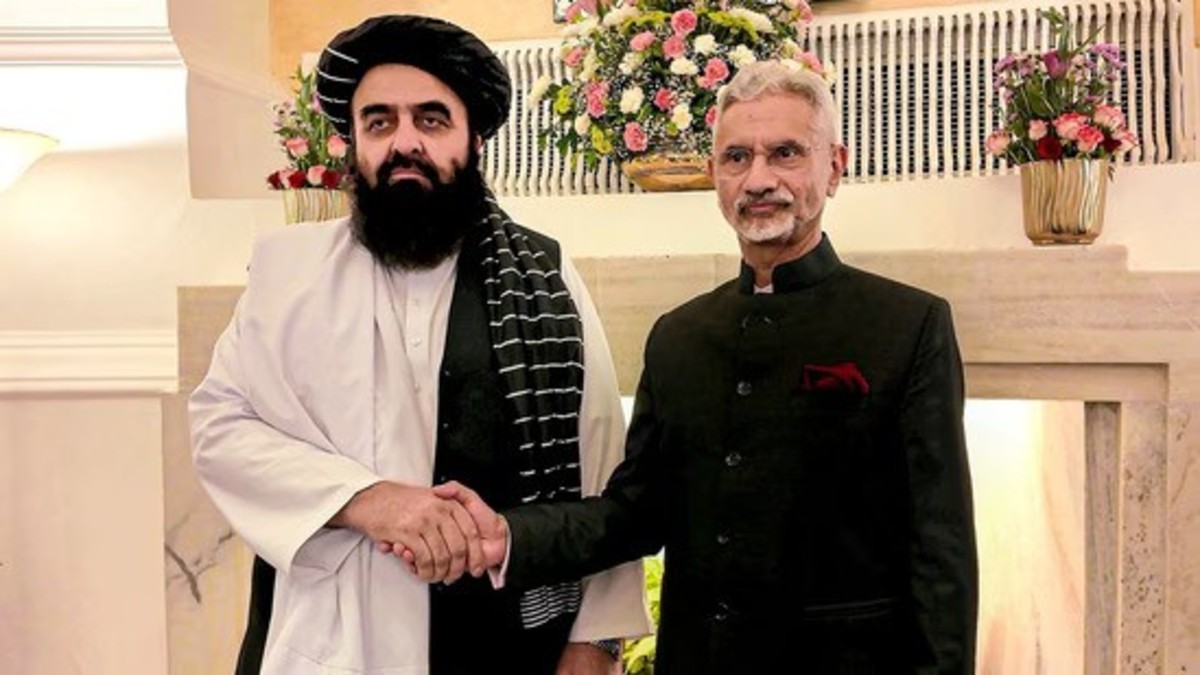Afghanistan’s foreign minister arrived in India on Thursday, marking the first visit to India by a Taliban leader since the group seized power in 2021. Amir Khan Muttaqi’s trip to India was made possible after the UN Security Council granted him a travel waiver to allow diplomatic engagements abroad. This visit is a remarkable development, as tension between the Taliban and Pakistan is high.
As the world grapples with resurgent extremism and shifting alliances, India’s choices in Afghanistan could reshape regional stability and counterbalance China’s ambitions. This visit is closely watched by Pakistan as New Delhi deepens its engagement with Afghanistan.
India is changing its approach to Afghanistan. The Taliban are now making their own decisions. This has weakened their strong ties with Pakistan. At the same time, India is also increasing engagement with the Taliban. Delhi is sending aid and technical help. This important visit is a step ahead in this outreach.
Countering terrorism, improving trade and India’s aid and assistance are the major issues that are being discussed.
For the Taliban, this is a chance to gain some legitimacy and show they have allies besides Pakistan and China. For India, it is a practical way to protect its interests and help bring stability to Afghanistan. It is a way to engage without giving the Taliban formal recognition. It is also a sign that Pakistan’s influence in the region is fading.
For many years, Pakistan supported the Taliban. Pakistanis long viewed the group as a strategic asset against India. They gave them a safe place to stay. But things changed after the Taliban took over Afghanistan in 2021. Their relationship grew sour. A related militant group, the Tehrik-i-Taliban Pakistan (TTP), became stronger in Afghanistan. They began launching attacks into Pakistan, killing many people.
Impact Shorts
More ShortsPakistan now accuses Afghanistan’s Taliban leaders of protecting these fighters. The Taliban reply that Pakistan’s own past actions created this problem. The situation has gotten worse. There have been airstrikes and fights along the border. Pakistan has also been sending Afghan refugees back home. This has made the rift between the two countries even deeper.
By the middle of 2025, their relationship had hit a new low. Even talks hosted by China couldn’t fix things. They started expelling each other’s diplomats and stopped trading. It is a difficult spot for Pakistan. Pakistanis once had influence over the Taliban. Now, they face a new government that is standing its ground.
India faces a difficult situation. Its current approach is to send aid but not officially recognise the Taliban government. This lets India stay true to its values. But it also creates an opening for others. China is investing in Afghan mines. Pakistan keeps its cultural links. India’s past aid, like the dams and schools it built, is now in question. Its influence is fading as the Taliban grow stronger.
The Taliban’s policies are also a real problem. They ban girls from school and silence opposition. This goes against everything India believes in.
Yet, turning away from Afghanistan completely could make things worse. It might lead to more instability, which can bring terrorism or refugee crises to the region. That’s a worry for everyone.
India should prioritise economic ties by reviving trade routes and investing in infrastructure like the Chabahar port link to bypass Pakistan. This not only boosts Afghan exports but also undercuts Islamabad’s stranglehold on Kabul’s economy. Humanitarian aid is still crucial, including increasing food assistance, medical facilities, and scholarships for Afghans. I have witnessed how this kind of soft power fosters goodwill.
A young Afghan student I met online once told me that India’s assistance felt like “a bridge to hope”. With increased development, capacity building, and technical assistance, India now has an opportunity to re-establish its presence in Kabul.
Strategically, this pivot counters China and Pakistan.
By engaging, India signals independence from Western sanctions, aligning with regional powers like Russia and Iran who advocate dialogue. Muttaqi’s trip, exempted by the UN from travel bans, underscores this shift—allowing India to have a Taliban envoy in Delhi to formalise ties without full recognition.
Finally, India should foster multilateral forums. India could lead a South Asian coalition on Afghanistan, pushing for UN-led talks on governance. Some critics contend that doing so runs the risk of obscuring the Taliban’s atrocities.
While Western allies may see it as undermining isolation efforts, Indian domestic critics condemn it as appeasement. There is also a probability that engagement might incite hardliners in Kabul if precautions are not taken. And India needs to be ready to leave if the Taliban break their pledges.
Yet, isolation hasn’t yielded reform; it has only deepened Afghanistan’s woes. As the Taliban seek legitimacy, India holds leverage. Let this visit be a call for bold, principled diplomacy. Policymakers in Delhi should engage wisely, advocate fiercely, and remind the world that in the graveyard of empires, bridges endure longer than walls.
The writer is a columnist. His articles have appeared in various publications like The Independent, The Globe and Mail, South China Morning Post, The Straits Times, etc. Views expressed in the above piece are personal and solely those of the author. They do not necessarily reflect Firstpost’s views.
)